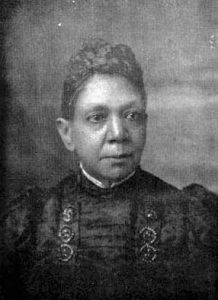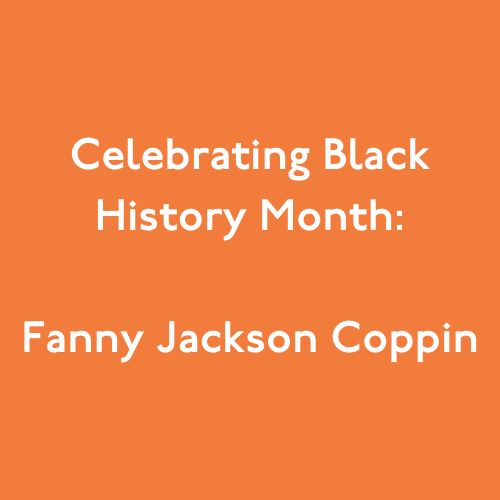This month, we’re celebrating influential Black leaders who have improved social emotional learning opportunities for all students.
“We want to lift education out of the slough of the passive voice. Little Mary goes to school to be educated, and her brother John goes to the high school for the same purpose. It is too often the case that the passive voice has the right of way, whereas in the very beginning we should call into active service all the faculties of mind and body.”
Creating and nurturing strong relationships and building communities where everyone belongs are vital pillars of social emotional learning. Promoting equity and opportunities for high-quality learning are central to that goal.
Of course, this work is not new. In the 19th century, Fanny Jackson Coppin led the way for Black women in education, charting a path for more diverse school communities that we still walk today.

Who was Fanny Jackson Coppin?
Born into slavery in Washington, D.C., on Jan. 8, 1837, Fanny Jackson Coppin would grow up to become one of the most influential figures in American education history. A true trailblazer, she was a teacher, lecturer, principal, and fierce champion for the achievements of Black women in education.
After her aunt purchased her freedom in 1840, Coppin moved to New Bedford, MA, working as a servant to author George Henry Calvert. During this time, she began dedicating herself to her education, hiring a tutor with the money she earned as a servant.
In 1860, she enrolled as a student at Ohio’s Oberlin College, the first U.S. college to accept both Black and white female students. Coppin excelled at Oberlin. As a sophomore, she switched from the “ladies’ course” of classes to the more academically rigorous “gentlemen’s course.” She later explained, “The faculty did not forbid a woman to take the gentleman’s course, but they did not advise it. There was plenty of Latin and Greek in it and as much mathematics as one could shoulder. Now, I took a long breath and prepared for a delightful contest.”
Her studies at Oberlin prepared Fanny Jackson Coppin for a career in education. Even as a student, she taught evening reading and writing classes for free African Americans, making her the college’s first Black teacher. After graduating in 1865, Coppin took a job as the principal of the Institute for Colored Youth (now Cheyney University of Pennsylvania) in Philadelphia, becoming the first Black woman school principal in U.S. history.
Fanny Jackson Coppin’s Lasting Impact on SEL
Fanny Jackson Coppin’s legacy is one of historic firsts. In addition to being the first Black woman to teach at one of the country’s most prestigious colleges and the first Black woman school principal in U.S. history, she was also the country’s first Black school superintendent. Throughout her life and career, Fanny Jackson Coppin led the way in advocating for and creating more just, equal, and supportive spaces for Black women in education.
Creating schools where all students feel safe, supported, and welcome should be essential for all education leaders who prioritize social emotional learning. SEL supports more equitable learning communities by developing skills that help foster healthy relationships and build social awareness.
Coppin understood that these skills were crucial to young learners’ development, saying, “Book learning is so respectable, and there is so much of it all about us, that it is apt to crowd out the prosy process of thinking, comparing, reasoning, to which our wisest efforts should be directed.”
And while educators are involved in shaping these communities and practices, they’re also direct beneficiaries of them. Coppin’s body of work is an example of what can be achieved when education is inclusive.
As we celebrate the impact of influential Black leaders in education this month, we give gratitude for Fanny Jackson Coppin. Join us for a deep breath of gratitude for her work, impact, and ever-growing legacy.
How are you celebrating Black History Month? Share this article on social media to celebrate Fanny Jackson Coppin, and let us know who else you are learning about this month!
Learn more about Fanny Jackson Coppin
Reminisces of School Life; and Hints on Teaching [Documenting the American South]










